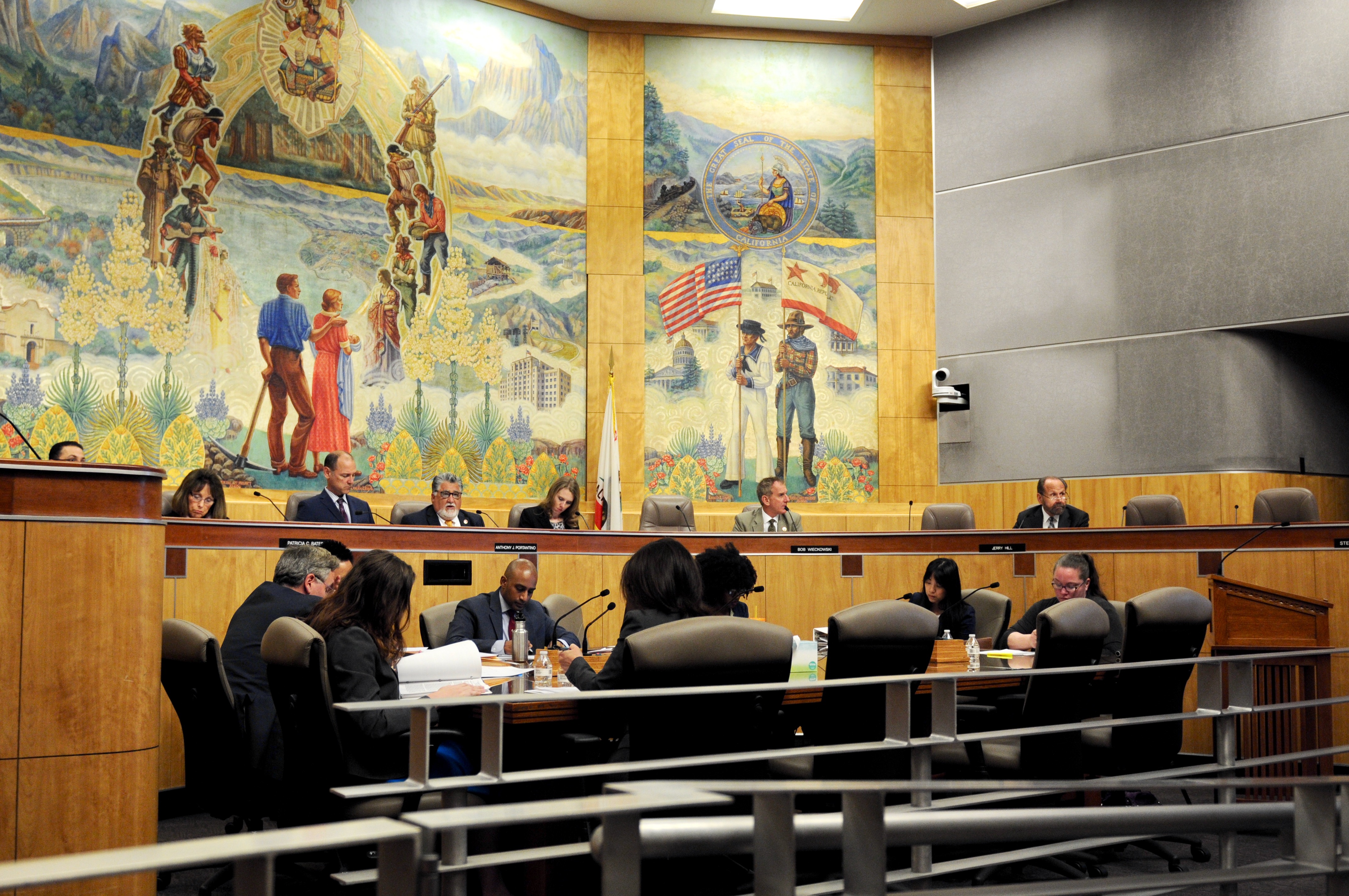
California State Capitol. (Photo: Kevin Sanders for California Globe)
Everything You Thought You Knew About the Lobbying Profession is Probably Wrong
Intro to Lobbying 1A
By Chris Micheli, March 25, 2019 8:27 am
Lobbying is basically advocating on behalf of a client or a cause for payment or on a volunteer basis in order to influence official action by either legislative or executive branch officials. Individuals or groups of individuals lobby elected and appointed officials and their staff in an attempt to influence those officials’ decisions.
Lobbying at a professional level is done primarily by paid advocates who are employed by companies, associations or individuals to advocate on their behalf. Lobbying occurs with personal visits, including office meetings, committee testimony, and telephone conversations. Lobbying also occurs through written communications such as research, reports, advocacy letters, grassroots contact, and the news media.

Lobbying can be at times challenging, fascinating and intellectually interesting and other times mundane. Some have described lobbying activities as being either direct or indirect. Direct lobbying is often defined as meeting in-person with legislators and staff and providing them with information relevant to their decision-making. Indirect lobbying is usually described as grassroots advocacy and is intended to result in contacting elected officials by constituents and other interest groups.
Indirect lobbying also involves use of the news media, whether free or earned. The lobbyists who are successful can benefit from the media attention for or against a policy issue or a particular piece of legislation. Generating that positive or negative press coverage is the difficult aspect even for an experienced advocate.
Generally, lobbyists do not require any particular license, certification or degree to engage in the profession. Most are experienced in the legislative process and one or more public policy areas. Lobbyists do need to register with the relevant state agency that regulates them. Most lobbyists do have college degrees and some are attorneys by training. Many have worked previously in the state legislature or in a state agency.
CHRIS MICHELI DISSECTS CALIFORNIA LIKE NO ONE ELSE—ONLY ON THE GLOBE:
• Direct Democracy and California’s Constitution Article II
• The Legislature and California Constitution Article IV (part II)
• The Legislature and California Constitution Article IV (part I)
• The Governor and California’s Constitution Article V
• Everything You Thought You Knew About Lobbying is Probably Wrong
• Unique Aspects of California’s Electoral System
• Who Makes the Rules for the Judiciary?
Regardless of who may employ them, lobbyists share the same goal of needing to persuade elected officials and their staff regarding legislation and educating them about the interests of their clients. Working with a coalition is often a productive course of action for a lobbyist to be successful in his or her advocacy efforts. Hearing from a collective voice lends credibility and increases chances of success.
In addition, the profession of lobbying involves more than advocacy. It also includes researching and analyzing legislation or regulatory proposals; monitoring and reporting on legislative and executive branch developments; attending legislative or regulatory hearings; working with coalitions impacted by the same issues; educating government officials and others on implications of proposed changes to statutes or regulations; and, communicating broadly and narrowly to various audiences.
Almost every interest has a lobbying organization. Even lobbyists have their own organizations at both the federal and state levels. While many folks only think of lobbyists as paid professionals, there are also many volunteer lobbyists. Whether paid or volunteer, the U.S. Constitution specifies the right to petition government for the redress of grievances under the First Amendment. As protected speech, lobbying will always have a role in government.
The lobbying profession is a necessary and appropriate part of the political process and a part of our democracy. Because decisions made by the federal, state and local governments impact individuals and groups and organizations, those who are impacted want to influence those individuals making decisions. And, decision-makers need to understand the impacts of their decisions. As a result, lobbyists are needed to communicate the impacts of those decisions.
Ultimately, our public officials must make informed decisions and they must consider information from both sides of a public policy issue. A just and equitable decision will be attained once all relevant information is provided to decision-makers. That is the essence of the lobbying profession.
- Frequently Asked Questions about State Agency Ethics Training - April 26, 2024
- Frequently Asked Questions about When Elected Officials Take Office - April 25, 2024
- Frequently Asked Questions About Ethics Training for Local Agencies - April 24, 2024





My husband and I want to start a business, but don’t know what contacts we should have on call. I didn’t know that a lobbyist could be hired by companies or associations to advocate on their behalf in personal visits like office meetings. I don’t have the confidence yet to run a meeting or anything like that, so it might be worth it to have a lobbyist on call in case I need someone more professional to handle our business matters.
This seems very useful, Lobbying can be at times challenging, fascinating and intellectually interesting and other times mundane. Some have described lobbying activities as being either direct or indirect. Thanks for sharing such an informative blog.
It is nice to learn that lobbyists inform elected officials of the client’s interest and that hearing a collective voice improves the credibility of the advocacy efforts. My brother-in-law was looking to employ a federal advocacy firm to lobby some policies regarding healthcare that may affect his business. It seems like finding a federal advocacy firm may help in this process.